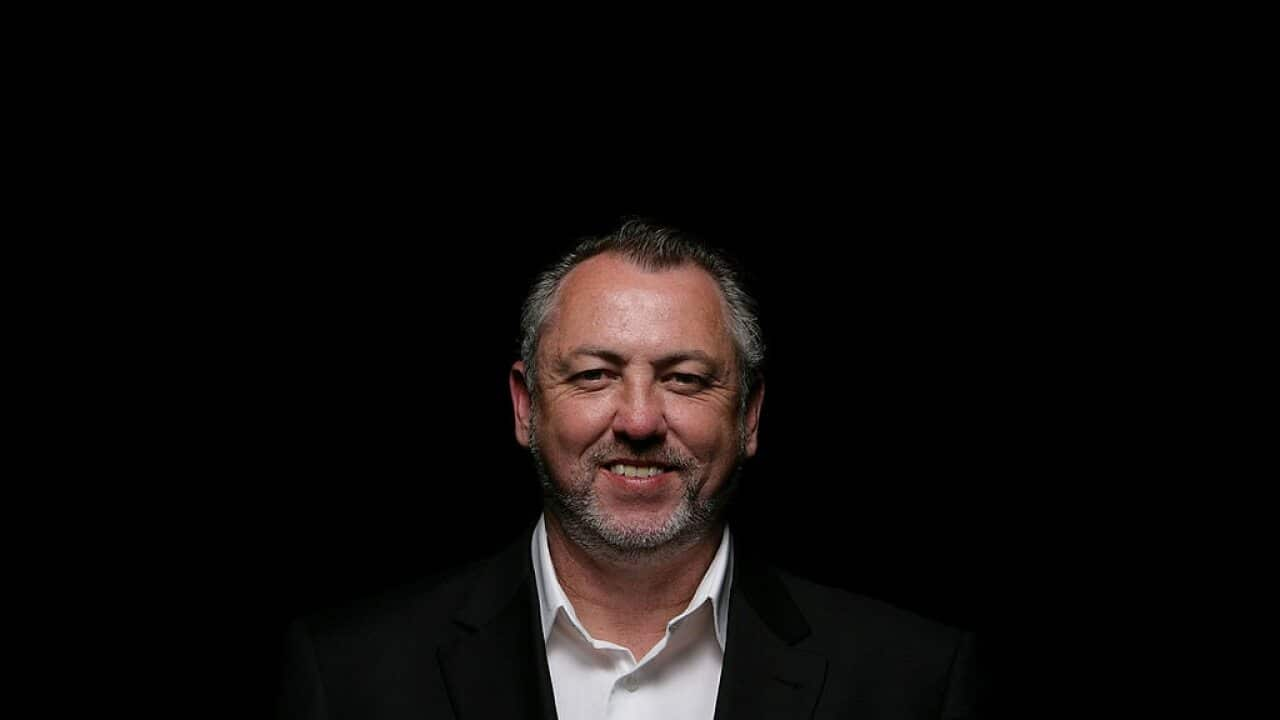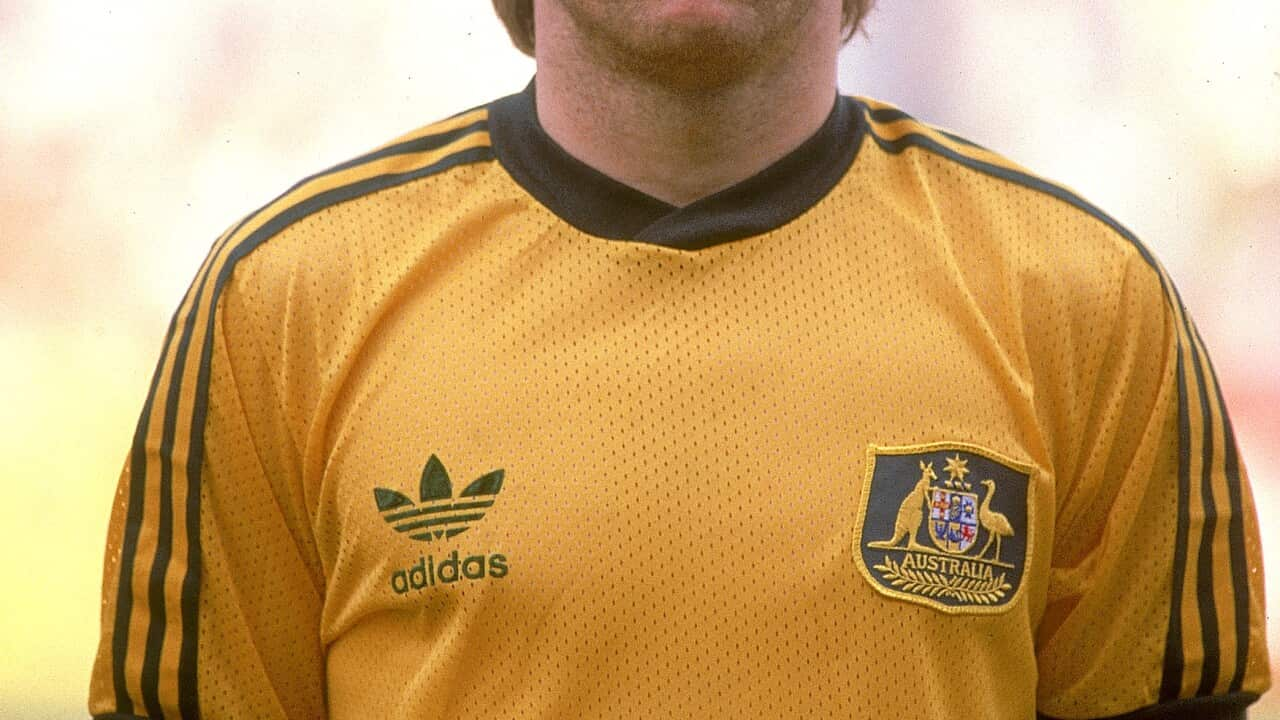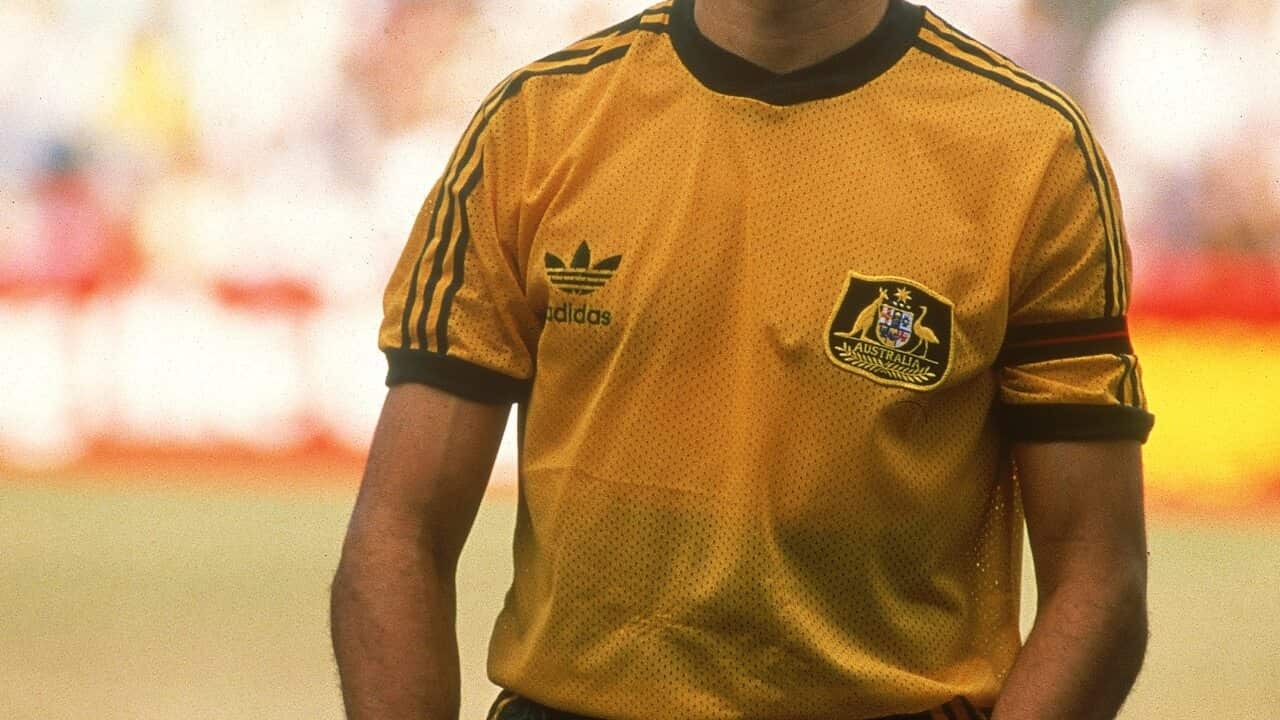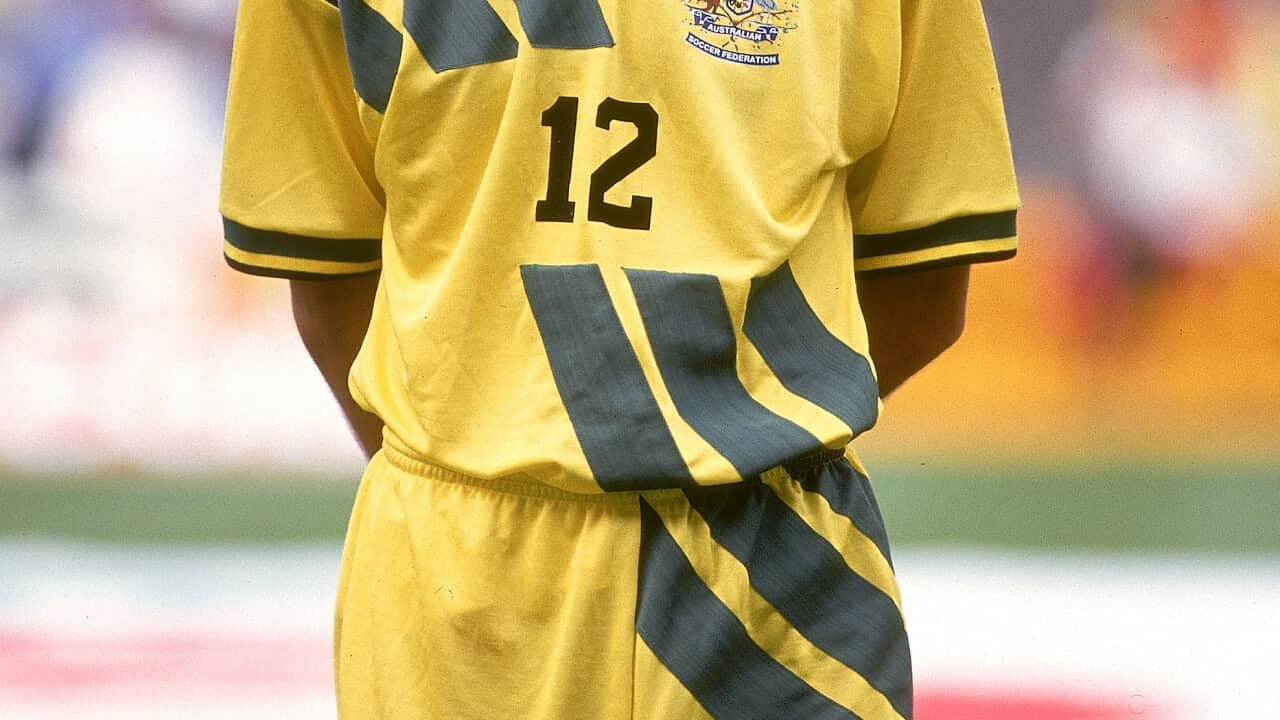Former Socceroos forward David Mitchell was so determined to realise his childhood dream of a professional career in Europe that in the early 1980s he bought his own contract to free himself of supremo Frank Lowy.
Glasgow-born Mitchell, who is now 54, was a Sydney City player at the time but club chairman Lowy told him he could only go to Rangers if he paid the then Australian record transfer fee of $35,000 Hakoah had forked out to Adelaide City for his signature.
After Mitchell helped the club win the National Soccer League in 1983, Mitchell told Lowy: “Ok, I’m paying you $30,000 and I’m out of here”.
The rest is history.
Mitchell went on to forge a long, if fractured, career in Europe and played with distinction for Australia.
He became a feared and respected forward, easily one of the best strikers Australia has produced.
He took part in four successive FIFA World Cup campaigns from 1982 and was one game away from playing in the 1986 tournament but he represented Australia in the 1988 Seoul Olympic Games.
He also coached Sydney Olympic, Sydney United and Parramatta Power in the National Soccer League and Perth Glory in the A-League.
Mitchell, whose exploits for his country earned him a nomination in Football Federation Australia’s Hall of Fame, was happy to talk about his journey with The World Game.
Tell us about your acrimonious move from Australia to Rangers in Scotland.
“When I was with Adelaide City I had a three-month trial with Rangers and did well.
“They asked my club how much they wanted for me and and they said Adelaide wanted $100,000.
“Rangers coach John Greig told me ‘listen, we like what we see but that’s too much for us … we can get a good player from here for that kind of money’ so the move was off.
“However Greig promised me that if I went back to Rangers as a free player the club would look at me again.
“Obviously I was annoyed with Adelaide City and went back to the club and told them I wanted to leave.
“Sydney City then purchased me for a record $35,000 but Lowy was not prepared to let me go to sign for Rangers.
“I played for Sydney for one season and we won the league after which they relented and told me ‘okay you can go but you have to pay your own contract’.
“I paid Lowy $30,000 of my own money so I could become a free agent.
“When I went to Rangers I was a free player but with no contract and no guarantees so it was a big risk. I could have bought $30,000 worth of Westfield shares then.”
Your last involvement in Australia was as Perth Glory coach. What are you doing now?
“I am basically based in Kuala Lumpur. I did some coaching in Malaysia after I left Perth and I also had six months of consulting work for Central Coast Mariners, a club that has some great projects through its Centre of Excellence. At the moment I am a pundit for Astro TV covering the Premier League and at the moment we're doing EURO 2016.”
You were born in Glasgow. How did you end up in Australia?
“My parents emigrated to Australia when I was six. They were looking for a better life as many Europeans did at the time. We settled in Adelaide because we had relatives there. I grew up in South Australia and football wise I climbed the ladder from there. It was always my dream to become a professional footballer.
“I first played in the State League, then I was picked up by Rale Rasic at Adelaide City in 1980 before I was selected to play for the Young Socceroos in the World Youth Cup in 1981. I also made my full debut for Australia that same year before I ended up playing in Europe.”
Did your representative duties ever affect your club career?
“I just loved playing for Australia even though it caused me all sorts of problems with my European clubs.
“I was playing at such a high standard that when I came home to play teams like Tahiti or Fiji it was always hard for me to go back to my clubs and resume playing.
“I was well thought of in Europe and I was earning good money but whenever I went away for two or three weeks I was never guaranteed of my spot when I went back to my club.
“For example, when I was picked to play for Australia in the 1988 Olympics in Seoul I was with Feyenoord.
“We had played then European champions PSV and beat them and I scored two goals, hit the bar and was causing them all sorts of problems. It was a period in which I was playing well.
“My coach warned me that if I went away for three weeks on national duty he would bring in another striker and if he did well I might not get back into the side.
“That’s exactly what happened and that’s why I ended up quitting Feyenoord.
“It was then that I decided to come back to Australia only for the big games like World Cup qualifying and Socceroos coach Frank Arok understood that.
"I played 44 times for Australia but if I came back to play in every game at the time I would have played more than a 100.”
You have played for many clubs in several countries. Where did you enjoy your football most?
“Every country that I’ve been to has been great. My first game for Rangers, for example, was against Celtic in front of 70,000 fans and it had an unbelievable atmosphere.
“When I went to Eintracht Frankfurt in West Germany it was like walking into the future, just the way they looked after you.
“They gave me a Mercedes Benz straight away, they had two physiotherapists and everything you need at training. They were streets ahead of any club I had been to.
“Eintracht was great. Poland striker Wlodzimiercz Smolarek and I were the only two foreigners at the club so it was a big thing to be able to play for them.
“When I left Eintracht they replaced me with Hungarian international Lajos Detari for something like 17 million marks. The club had told me they could use only two foreigners so I would have had to be on the bench. That’s when I left the club to join Feyenoord in the Netherlands.
“Feyenoord are another great club and they have some fantastic fans as well.”
Which was the most enjoyable moment of your international career?
“The World Youth Cup in 1981 in Australia was special. We were a bunch of young ambitious Australians and we could have won that cup, you know. We beat then world champions Argentina and drew with England and Cameroon in the group stage.
“We then played West Germany in the quarter-finals and lost 1-0 but Mark Koussas missed a penalty. We were unlucky in that game. The Germans went on to win the tournament.
“Playing Scotland at Hampden Park for a place in the 1986 World Cup stands out too. Those days the Scots had a strong side with big stars like Graeme Souness and Kenny Dalglish. Alex Ferguson was manager.
“The return in Melbourne was a fantastic experience. The crowd was up for it and right behind us, same as the Sydney crowd got behind the Socceroos in the playoff against Uruguay in 2005.
"We needed to win by two goals and we battered Scotland. We should have beaten them. Had we scored one goal we would have scored another one but we could only draw 0-0.”
How does your Socceroos side of the 1980s compare with the present one?
“Ange Postecoglou has done a fantastic job with the national team.
“Many people say that in my days the players were better and more technical but the game has evolved.
“Players are more professional today and are a lot fitter and there is a football science that did not exist before.
“We’ve also got a better mentality. Ange is so right in asking why we should see ourselves as playing second fiddle to the Europeans. We can take on anyone, no matter who it is.
“It was very brave for Ange to say that but he has backed it with results.
“Australians have always had self-belief and confidence but now the technical part is coming through.”
Did you enjoy the striker’s role?
“I was a big and quick striker and quite aggressive. But I reckon I had more technical ability than many people would give me credit for.
"Ron Smith saw me and identified me as a very good dribbler with the ball at pace and invited me to the AIS for the first-ever intake. Ron was responsible for producing most of our early talent at the AIS like Frank Farina and Mark Viduka, to name a few, and he doesn’t get recognised enough for that.
“I used to play wide on the left or wide on the right, cutting inside and scoring goals.
“The hardest part for me was when I used to get stuck as a centre-forward with two men on your back.
“I could play in midfield too but because I was quick they used to play me up front. I enjoyed it, though.”
Who were the best footballers you ever played with?
“Andy Möller, who used to be my room-mate at Eintracht before he went to Borussia Dortmund, was a fantastic young player coming through. He is definitely one of the finest footballers I had the privilege to play with.
"As was Glenn Hoddle, who was player/manager at Swindon when we won the championship playoff at Wembley in 1993."
Who are the players you admire most abroad and in Australia?
“From a striker’s point of view I like Zlatan Ibrahimovic, who has played in several countries. He’s a target man but he’s very athletic.
“But you cannot go past Lionel Messi ... what a player. Messi and Cristiano Ronaldo are stand-outs at the moment. The technique, skill and dedication these guys possess are just frightening.
“In Australia there are some good players like Adelaide United’s Stefan Mauk. I also like what I see in Aaron Mooy, who has done really well. There is something about these two young men.”
Do you have aspirations to return to coaching in Australia?
“At the moment I’m doing my full pro licence because I was very sick from the last course and could not do its second stage.
"In Australia it is always good to be accredited and to have the full pro licence and I give credit to guys like Rob Baan and Han Berger who have helped improve coaches education in Australia. Now it is being advanced even more with Eric Abrams, who I met up at the AFC.
"There are a lot of young coaches coming through now which is good because Asia is increasingly becoming more interested in Australian coaching methods as we develop better coaches.
"I realise that there a lot of younger coaches coming through and they deserve the opportunity of coaching, however the wheel turns and there is no substitute for experience and good man-management skills.
"On that basis I would love the opportunity to coach in the A-League again.
"I have always had a progressive approach to coaching and I would relish the chance to build a great team of players and young hungry coaches as backroom staff who share the same collaborative approach to create a successful club."
DAVID MITCHELL FACTFILE
Club career:
1980-1982: Adelaide City
1982-1983: Sydney City
1983-1985: Rangers
1985: Seiko FC
1985-1987: Eintracht Frankfurt
1987-1989: Feyenoord
1988-1990: Chelsea (loan spell with NEC 1990)
1990-1991: Newcastle United
1991-1993: Swindon Town (loan spell with Altay Izmir 1993)
1993-1995: Millwall
1995-1996: Selangor
1996-1997: Sydney Olympic
1997-1999: Sydney United
International career:
1981-1993: Australia 44 matches
Honours:
Sultan of Malaysia PJK Award 1995, Selangor: Malaysia Cup 1995. Swindon: Division One (Championship) playoff final 1992-1993. Chelsea: Division Two (Championship) 1988-1989. Rangers: Scottish League Cup 1984-1985. Seiko: Hong Kong Championship and Cup 1985. Sydney City: NSL 1983.
Sultan of Malaysia PJK Award 1995, Selangor: Malaysia Cup 1995. Swindon: Division One (Championship) playoff final 1992-1993. Chelsea: Division Two (Championship) 1988-1989. Rangers: Scottish League Cup 1984-1985. Seiko: Hong Kong Championship and Cup 1985. Sydney City: NSL 1983.






